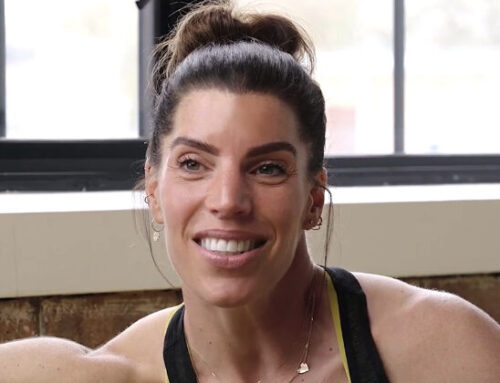
Fear is a complex bio-mechanical and emotional response to perceived danger or the threat of harm.
But it can also stem from imagined dangers. One of the best descriptions I ever heard is that the brain ‘is like an over-protective babysitter for our bodies’.
I have a fear of water which dates back a near drowning incident when I was a child. I spent my whole adult life avoiding water to the best of my ability – which is not hard when you put your mind to it. I could swim, of course, but you would never find me jumping into deep water or being in open water out of choice.
I also have a fear of heights. Exposure to which gives me very real, physical symptoms – dizziness and feelings of sickness. My whole body will tremble if I am forced to jump off or scale a great height – and I know this because I have had to do it countless times (on SAS Who Dares Wins, Coasteering trips, Abseiling down the Selvaggio Blu coastline in Sardinia). But I have no past experience that would logically create this fear, except perhaps, a learned aversion from my mother.
But here’s a thing. Fear is useless. Those imagined fears simply block our judgement and our progress – keeping us standing still.
It’s also helpful to remember that fear a sign that you are in fact OK. If you have the capacity to feel fear for prolonged periods, you are not actually in danger right now. And here’s another thing. Fear involves the same chemical reactions in our bodies as excitement and happiness. So it really is all about how you look at it. You can change the narrative.
Fear can be triggered in response to experiences or trauma, but it can also be a representation of something else entirely – such as a loss of control or rejection. Understanding your fear helps you to deal with it. Peeling away the layers to truly work out what the fear is. Our brains play games with us, adding extra ‘padding’ as protection from a perceived fear. Diverting us from the ‘core’ fear that we should be addressing, keeping us locked out of experiencing all the incredible opportunities that may lie on the other side.
And because we live with it for so long, it becomes part of us. We learn to limit our lives in response to the fear in question. The brain increases the level of self-protection, the brain can re-create emotional pain to keep you away from the perceived ‘threat’ and these increasingly complex structures act like barriers to any alternative and become our inherent weaknesses, we even define ourselves by them.
I have learned that the only way to deal with this is to confront fear. I learned it really by accident. And perhaps out of badness. I had become annoyed with myself for avoiding all the things that seemed quite fun, the things that I knew would help me to grow and find a way out of the stifling situation I was in at the time. That decision turned out to be one of the best I ever made.
Trust me when I say, the only thing worse than the fear you think you are facing, is standing still.




